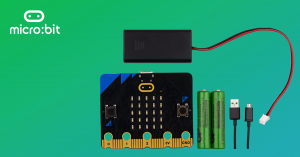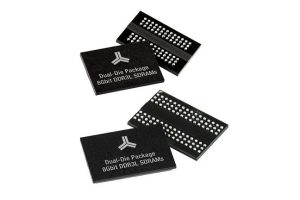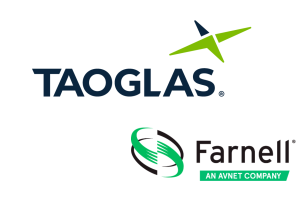
EW has more technical details on micro:bit v2 here
The updated pocket-sized computer also provides future potential for AI and Machine Learning (ML) in the classroom, paving the way for children to experiment with some of the world’s most transformative technologies.
Farnell has manufactured and shipped more than five million devices since 2016, helping the Foundation reach an estimated 25 million children in more than 60 countries who have learnt digital creativity and computing skills.
The micro:bit has been adopted by educational organisations around the world to support Science, Technology, Education and Mathematics (STEM) learning programmes.
The Foundation worked directly with teachers and the community of micro:bit fans to drive the selection of updates, ensuring the updated micro:bit meets current and future requirements. One of the most requested enhancements was the addition of a built-in speaker and microphone to allow children to be creative with sound and music.
As part of the Micro:bit Educational Foundation’s commitment to keep the device as cost-effective and accessible as possible, the updated feature-rich micro:bit is available at the same price as the original version.
The updated micro:bit is packed with new technology and improved features, including:
• Computing power – The main Nordic nRF52833 microprocessor runs at 64MHz with 512kB of flash storage (double the storage in comparison to the original micro:bit), and an eightfold increase in RAM to 128kB. The micro:bit also includes a discrete regulator that can supply up to 200mA of current to external accessories.
• Audio components – A MEMS sensor microphone and 9mm magnetic loudspeaker are partnered with a dedicated recording LED to indicate when the microphone is on, allowing teachers to engage with students around privacy and the impact of listening devices.
• Programming – Official micro:bit editors support both versions of the micro:bit simultaneously with a single download using a new type of universal hex file. For ease of use, if they are using features that are on both versions of the micro:bit, users will not have to select a device.
• Touch capabilities – The device includes a touch sensitive logo enabling users to take on new exciting tasks or expand previous micro:bit projects.
• Ease of use: a built-in sleep/off mode that means the board can be powered-down with batteries connected.
The Micro:bit Educational Foundation provides a range of resources for educators on micro:bit.org, including micro:bit classroom. Micro:bit classroom makes it easy to save progress and start again at the same point in the next lesson, monitor student progress in the classroom and download code into word to provide evidence of student progress – all making programming lessons easier to manage and more productive.
Gareth Stockdale, CEO of the Micro:bit Educational Foundation, said: “The purpose of the micro:bit is to help children unlock their creative potential and learn how to shape the world around them. Learning coding and computational thinking can enhance their life chances in the 21st century. We have worked closely with our thriving community to make it even easier to get the most out of the device both inside and outside the classroom. Getting hands-on and experimenting with the micro:bit is critical to helping children better understand important technologies early in their development, and we aim to make this as fun, accessible and affordable as possible. Our partnership with Farnell has been key to the success of the project and we thank them for their continued support as we impact more young people around the world.”
Lee Turner, Global Head of Semiconductors and SBC at Farnell said: “We are very proud of Farnell’s longstanding partnership with the Micro:bit Educational Foundation, which has made a significant difference to the education of children across the world. As the exclusive manufacturer of the micro:bit, Farnell has worked closely with the Micro:bit Educational Foundation throughout the design and development process and managed supply chain to ensure availability of the board. We also continue to work with major educational organisations to support the introduction of the micro:bit into the classroom through bespoke country-wide programmes. The updated micro:bit signifies a major step forward and enables students to gain insight into an even broader range of technologies to support them as they prepare for careers in the digital economy.”
similar to the Super:bit programme in Norway.
Farnell also provides a range of resources to assist educators and parents supporting children with STEM. The element14 Community’s STEM Academy provides a wealth of content and support for those looking to get started with the micro:bit.
element14 Community’s ‘The Learning Circuit’ series features a number of instructional videos which take viewers through different ways to learn and explore with micro:bit. These short videos teach users how to apply micro:bit to their designs and offer instruction and advice on bringing projects to life.
The micro:bit and a wide range of accessories are available to order now from Farnell in EMEA and Newark in North America. Search “Farnell micro:bit” for more information.
 Electronics Weekly Electronics Design & Components Tech News
Electronics Weekly Electronics Design & Components Tech News



